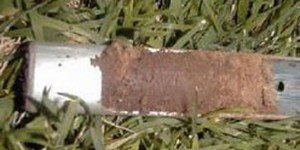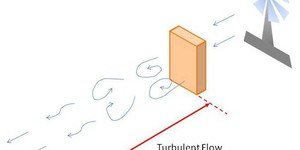Scratch, Environmental Engineering Science Projects (29 results)
The human population on Earth is now more than 7.5 billion, and growing quickly. With more and more of us living an energy-intensive, modern lifestyle, the environmental stresses from human activity continue to increase. Greenhouse gases leading to global warming and fertilizer runoff resulting in marine "dead zones" are just two examples of large-scale environmental impacts from human activity. See how science, engineering and technology can help us take good care of our environment while still enjoying the comforts of a modern lifestyle.
|
Select a resource
Sort by
|
Did you know that you can use more water on your lawn and garden in the summer than you use for all other purposes all year long? If you have an automated sprinkler system for your lawn and/or garden, this project could save money on your family's monthly water bill. You'll also be helping to conserve a precious natural resource: clean water.
Read more
Featured
Have you heard that garlic powder is supposed to inhibit the growth of bacteria? Which do you think would make a better disinfectant: a solution of garlic powder or a solution of bleach? This project shows you a straightforward way to compare the effectiveness of different disinfectants (or other antimicrobial agents), by measuring zones of inhibition on a culture plate.
Read more
We are all familiar with the nursery rhyme, "Rain, rain, go away, come again some other day...", or
the song "Singin' in the Rain." Numerous songs and stories describe our feelings about rain. Why so many?
Because we humans understand how important rain is to our well-being. Rainfall, as part of the
water cycle, brings water back to Earth that had previously evaporated or transpired
from the surface. When water vapor in the atmosphere condenses into clouds and falls back to Earth as rain,…
Read more
Watch out! Eddies and vortexes are powerful regions of air and water flow that you have to watch out for in some surprising places. Try out this science fair project to discover why they can be dangerous, as well as where and how to find them.
Read more
Is there a public park, playground, or beach near you that suffers from a litter problem? Here is a way that you can do something about it! First, get a measure of the size of the problem by conducting a litter survey. Select a fraction of the area to survey at regular intervals (e.g., every two or three days, or maybe once a week). The area should be large enough so that you can get a representative sample of litter, but not so large that you can't clean it up. Each time you conduct your…
Read more
Divide a part of your garden into two equal plots, with each plot receiving equal amounts of sun. Cover one plot with two inches of organic mulch, such as compost or ground bark. Leave the other plot uncovered. Use the same amount of water for each plot for two or three weeks. At the beginning of the experiment, and at one-week intervals, dig down and check the soil in each plot for moisture content. Which plot holds water better? Which plot shows better plant growth? (McCausland, 2006)
Read more
When pesticides are applied to protect crops, run-off of potentially harmful pesticides is a major problem. Can water plants such as hardstem bulrush, common cattail, parrotfeather and smooth scouring rush promote pesticide breakdown? If so, diversion of irrigation run-off into plant-filled ponds could help reduce pesticide pollution. Mix malathion at 12.5% of the recommended application strength (to simulate dilution by rain or irrigation water). Use 5-gallon buckets for testing various…
Read more
Reclaimed (treated) wastewater can be used for many purposes, including landscape watering and freeing up valuable fresh water for other purposes (like drinking water). It's a great way to conserve water, but is it really safe? This science fair project is designed to find out.
Read more
Has your house (or one of your friend's houses) been remodeled recently? Were any improvements made for energy efficiency (solar systems, better insulation, passive solar heating, better lighting)? Compare your family's energy costs for a similar time period before and after the remodeling (remember that energy usage often varies seasonally). Monthly bills often have a bar graph showing energy usage for the previous 12 months. You may also be able to get information on past energy usage…
Read more
Engineers are trying to tackle the world's ocean pollution problem using robots. Some robots, like Mr. Trash Wheel and the ship featured in this Mark Rober video, are stationary and collect trash as it flows out of rivers before it gets into the ocean. Others, like the Jellyfishbot, are mobile and can squeeze into narrower spaces to collect trash:
Can you build and test your own trash-skimming robot? If you do not have access to a natural body of water to test it in, you can use a bathtub or a…
Read more
|
Explore Our Science Videos
Separating Iron Filings from Sand
Squishy Circuits Introduction
Light-Tracking Robot: BlueBot Project #2










